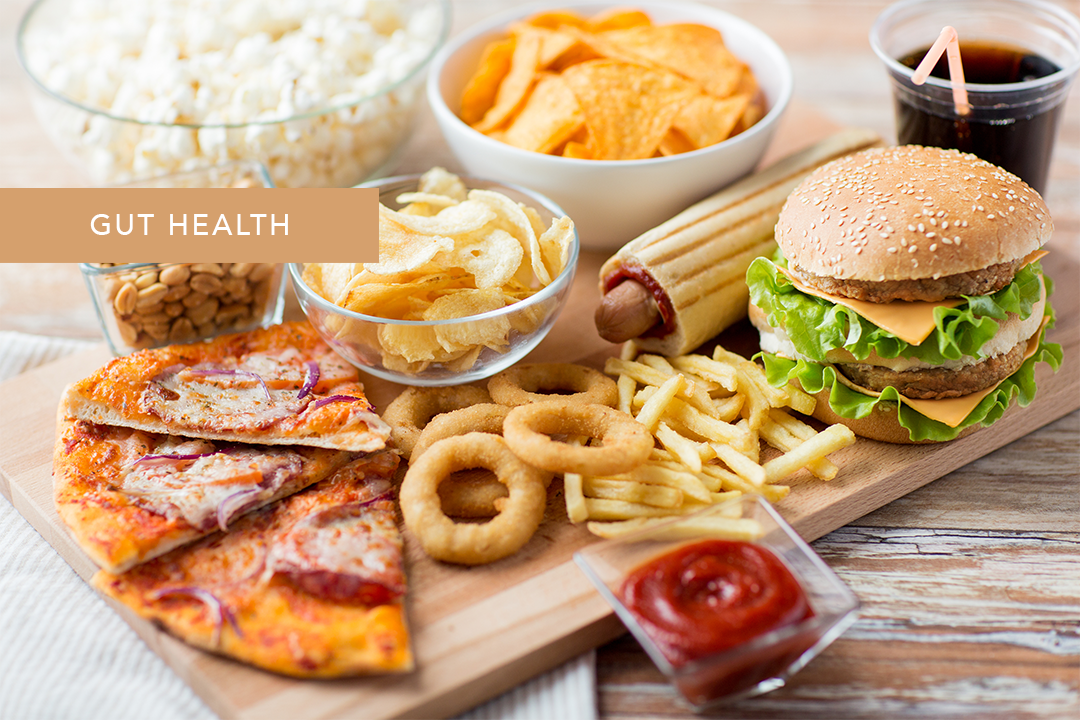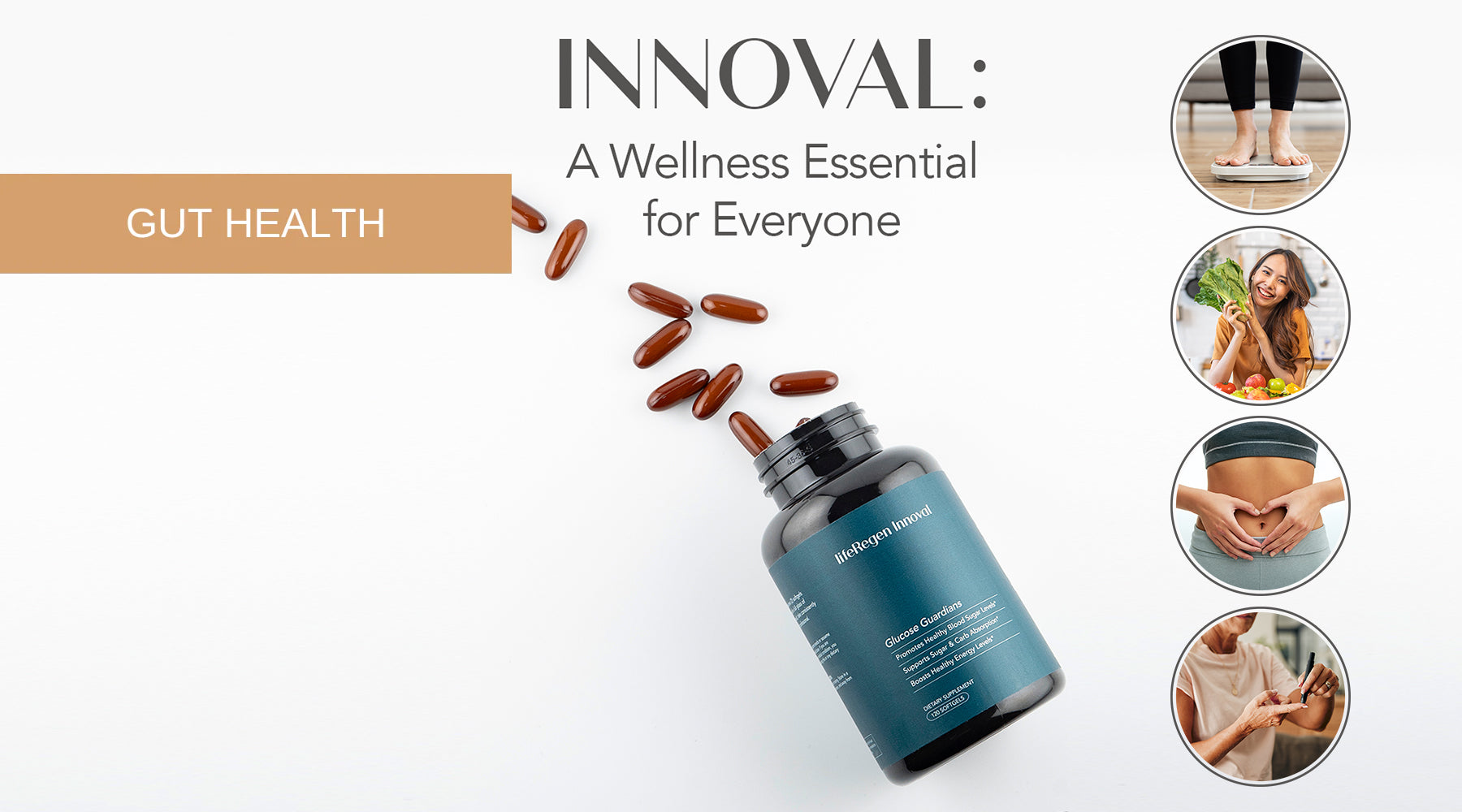Maintaining a healthy gut is crucial for overall well-being, as it impacts digestion, nutrient absorption, and immune function. While some foods promote gut health, others can wreak havoc on your digestive system. In this article, we'll explore the worst foods for gut health and why you should avoid them for a happier, healthier gut.
What to Avoid
Refined Sugars
Excessive consumption of refined sugars, found in sweets, pastries, sugary beverages, and processed snacks, can have a detrimental effect on gut health. These sugars feed harmful bacteria in the gut, leading to an overgrowth of pathogens and an imbalance in the microbiome. This imbalance can contribute to digestive issues like bloating, gas, and diarrhea, as well as more severe conditions like irritable bowel syndrome (IBS) and inflammatory bowel disease (IBD).
Artificial Sweeteners
While artificial sweeteners may seem like a healthier alternative to refined sugars, they can also have negative effects on gut health. Studies have shown that artificial sweeteners like aspartame, sucralose, and saccharin can alter the composition of gut bacteria, leading to dysbiosis and metabolic dysfunction. Additionally, these sweeteners may stimulate sugar cravings and disrupt the body's natural hunger signals, contributing to overeating and weight gain.
Gluten
For individuals with gluten sensitivity or celiac disease, gluten-containing foods like wheat, barley, and rye can wreak havoc on the digestive system. Gluten can damage the lining of the small intestine in sensitive individuals, leading to inflammation, malabsorption of nutrients, and digestive symptoms like bloating, diarrhea, and abdominal pain. Even for those without gluten sensitivity, excessive consumption of gluten-rich foods may still have negative effects on gut health and overall well-being.
Red Meat
Red meat, such as beef, pork, and lamb, contains high levels of saturated fat and cholesterol, which can negatively impact gut health. Frequent consumption of red meat has been linked to an increased risk of conditions like gout, indigestion, and stomach bloat. Additionally, the N-nitroso chemicals produced during the digestion of red meat can damage the lining of the bowel and increase the risk of colon cancer. To promote gut health, opt for lean protein sources like fish, poultry, beans, and tofu instead.
Fried Foods
Fried foods are notorious for their high energy density and unhealthy cooking methods. The process of frying foods in hot oil can lead to the formation of trans fats and advanced glycation end products, which can disrupt gut bacteria and cause inflammation in the digestive tract. Consuming fried foods regularly can also contribute to weight gain, heart disease, and upset stomach. Instead of frying, try baking, grilling, or steaming foods for a healthier cooking alternative.
Heavily Processed Foods
Heavily processed foods like frozen entrees, fast food, white bread, and canned vegetables are filled with unhealthy additives like sugar and preservatives. These foods are low in fiber and nutrients, which are essential for promoting the growth of healthy bacteria in the gut. A diet high in processed foods can disrupt the balance of gut bacteria, leading to inflammation and digestive issues. To support gut health, focus on whole, unprocessed foods like fruits, vegetables, whole grains, and lean proteins.
Alcohol and Other Beverages
Excessive consumption of alcohol can disrupt the balance of gut bacteria and promote the growth of harmful bacteria in the digestive system. This imbalance can lead to increased gut permeability and various health issues. Similarly, beverages high in caffeine, such as coffee and soda, can stimulate the intestines and cause diarrhea. To support gut health, limit your intake of alcohol and caffeine-containing beverages and opt for water, herbal tea, or kombucha instead.
Dairy
While fermented dairy products like yogurt and kefir can be beneficial for gut health, unfermented dairy products like cow's milk may disrupt the gut microbiome. Cow's milk can alter the gut flora in unhealthy ways, allowing negative bacterial strains to thrive and push out beneficial bacteria. If you're sensitive to dairy or lactose intolerant, consider dairy alternatives like coconut milk or almond milk to support gut health without the negative effects of cow's milk.
Fructose
Frequent consumption of fructose, found in fruits and added sugars, can disrupt gut microbiota and increase gut permeability. This can allow toxins to enter the bloodstream and contribute to inflammation and digestive issues. Additionally, artificial sweeteners like sucralose and saccharin have been found to modify the composition of gut bacteria, leading to an imbalance in the microbiome. To support gut health, limit your intake of fructose and artificial sweeteners and focus on whole foods like fruits, vegetables, and whole grains.
Surprising Foods That Can Negatively Impact Your Gut Health
Granola Bars
While often perceived as a healthy snack option, many commercial granola bars contain high amounts of added sugars, artificial flavors, and preservatives, which can disrupt gut microbiota balance and contribute to inflammation.
Salad Dressings:
Store-bought salad dressings may contain unhealthy fats, artificial additives, and high levels of sodium and sugar, which can negatively affect gut health. Opting for homemade dressings using olive oil, vinegar, and herbs can be a healthier choice.
Flavored Yogurt
Flavored yogurt varieties often contain added sugars, artificial colors, and preservatives, which can alter gut microbiota composition and contribute to digestive issues. Choosing plain yogurt and adding fresh fruits or honey for sweetness is a better option.
Protein Bars
While marketed as a convenient source of protein, many protein bars contain artificial sweeteners, sugar alcohols, and highly processed ingredients that can disrupt gut microbiota balance and cause gastrointestinal discomfort.
Bottled Smoothies
Pre-packaged bottled smoothies may contain high levels of added sugars, artificial flavors, and preservatives, which can negatively impact gut health. Making homemade smoothies with fresh fruits, vegetables, and natural sweeteners is a healthier alternative.
Cereal Bars
Cereal bars often contain refined grains, artificial sweeteners, and additives, which can lead to gut inflammation and digestive issues. Opting for whole-grain alternatives with minimal added sugars and natural ingredients is a better choice.
Fruit Juice
Commercial fruit juices are often high in added sugars and lack the fiber found in whole fruits, which can lead to rapid spikes in blood sugar levels and disrupt gut microbiota balance. Consuming whole fruits or diluting fruit juice with water is a healthier choice.
What Food Repairs Your Gut
Several foods are known to support gut repair and overall digestive health. Yogurt and kefir, rich in probiotics, help restore balance to the gut microbiome. Fermented vegetables like sauerkraut and kimchi provide beneficial bacteria and enzymes that aid digestion and replenish gut flora.
Additionally, bone broth contains collagen and amino acids that support gut lining health, while fiber-rich foods like fruits, vegetables, and whole grains provide prebiotic fiber to nourish beneficial gut bacteria. Incorporating these foods into your diet can promote gut healing and support optimal digestive function.
Incorporating gut-friendly foods like sesame seeds, beeswax, and skullcap root into your diet also has huge benefits. Our ingredients offer soothing and antioxidant properties, promoting gut health from within.
Maintaining a healthy gut is essential for overall health and vitality. By avoiding the worst foods for gut health, such as processed foods, high-fat foods, refined sugars, artificial sweeteners, and gluten, you can support a thriving gut microbiome and reduce the risk of digestive issues and chronic diseases. Instead, focus on incorporating whole, nutrient-dense foods like fruits, vegetables, lean proteins, and whole grains into your diet to promote optimal gut health and well-being.


